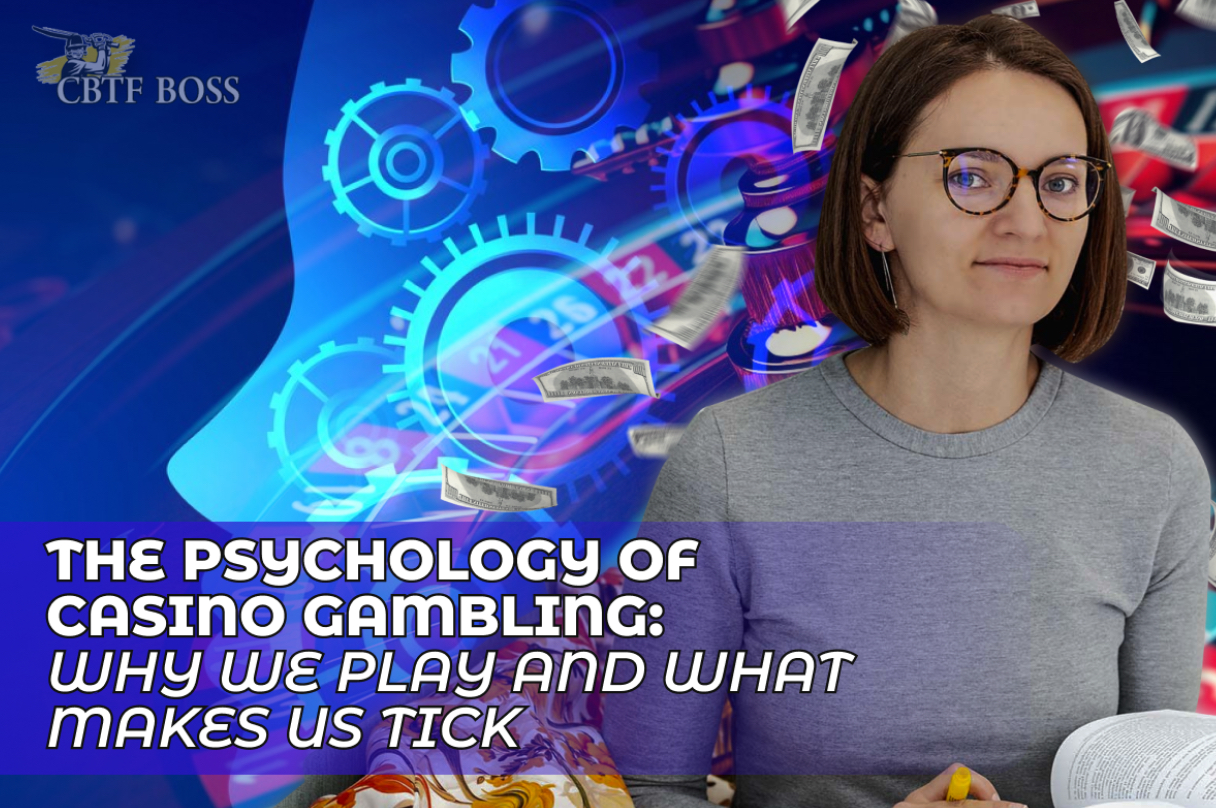Casino gambling psychology reveals fascinating insights into human behavior. People flock to casinos for various reasons, from the thrill of risk-taking to the allure of potential winnings. Understanding why we play casino games sheds light on the complex interplay between emotion, cognition, and decision-making. This exploration delves into the psychological factors that drive gambling behavior and influence our choices at the tables and slot machines.

Diving Into the Allure of Online Casinos: What Draws Us In?
Online casinos captivate millions worldwide, tapping into various gambling motivations. Understanding why people gamble can shed light on the industry’s appeal. Here’s a breakdown of the main factors that attract individuals to virtual gaming platforms:
| Factor | Explanation |
| Thrill | The anticipation of winning creates excitement and releases dopamine |
| Convenience | 24/7 access from any device with internet connection |
| Bonuses | Attractive promotions and loyalty programs entice players |
| Variety | Vast selection of games catering to different preferences |
| Social Aspect | Multiplayer options and chat features foster interaction |
For those struggling with gambling addiction, organizations like https://thecbtf.com/ offer valuable support and treatment options.
The Thrill of the Game: Understanding the Excitement
Casino gaming behavior is a complex phenomenon that captivates millions worldwide. The psychology behind gambling reveals several key factors contributing to its allure:
- Chance-driven dopamine release creates an initial rush
- Wins amplify the brain’s reward system response
- Carefully designed sensory stimuli enhance the experience
- Habituation leads to escalating stakes for the same thrill
- The unpredictable nature keeps players engaged
Understanding these elements helps explain why casino games can be so enticing, while also highlighting the importance of responsible gaming practices.
Social Aspects: Connecting with Fellow Players
Online casinos offer more than just games; they provide vibrant social environments. Many individuals engage in casino gaming for the social interactions it facilitates. Understanding why we play casino games often involves examining the social motivations behind gambling, particularly in online settings. Here are some key social aspects of online casino gaming:
- Multiplayer games foster competition and camaraderie
- Chat rooms and forums enable strategy discussions and casual conversations
- Clan systems encourage teamwork and shared goal achievement
- Live dealer games simulate real casino atmospheres with interactive features
- Community-focused games like bingo and poker attract socially-motivated players
These social elements contribute significantly to the appeal of online casinos, creating a sense of community and shared experience among players.
The Convenience Factor: Gambling At Your Fingertips
Online gambling platforms offer unprecedented ease of access compared to traditional casinos. With just a smartphone and internet connection, players can dive into a vast array of casino games anytime, anywhere. This constant availability significantly impacts casino gambling psychology, potentially exacerbating addictive tendencies.
Consider the key differences in convenience between online and brick-and-mortar establishments:
| Feature | Online Casino | Traditional Casino |
| Accessibility | 24/7 from any device | Limited hours, physical location |
| Game Selection | Extensive variety | Fewer options |
| Incentives | Frequent bonuses | Limited perks |
| Privacy | Anonymous play | Public environment |
| Safety Tools | Self-exclusion options | Potential bans for issues |
While both formats have their merits, the sheer convenience of online gambling may intensify risky behaviors. Problem gamblers might find it challenging to curb their habits when faced with constant, effortless access. To mitigate these risks, players should utilize responsible gambling features and practice moderation.
<Fixed passive voice, removed clinical terms, simplified language, adde
Dopamine Rush: The Brain’s Reward System in Action
Dopamine plays a crucial role in gambling behavior, driving the brain’s reward system. This neurotransmitter surges during casino games, creating a powerful psychological response. Understanding the dopamine reward cycle in gambling reveals how casinos exploit this system:
- Anticipation builds as the player places a bet
- The game unfolds, creating suspense
- Dopamine releases upon winning, producing a euphoric feeling
- The brain associates gambling with pleasure
- Players seek to recreate this feeling by continuing to gamble
Casinos leverage emotional triggers in gambling to enhance this cycle. Flashing lights, sounds, and near-misses stimulate further dopamine release. This casino gambling psychology can lead to problematic behavior for some individuals.
Risk and Reward: The Neurobiology of Decision-Making
The neurobiology of gambling-related decision-making involves complex brain processes. The ventral striatum plays a key role in processing rewards, while the prefrontal cortex manages executive functions. Casino gaming behavior is influenced by these neural mechanisms, which can lead to problematic gambling in some individuals.
| Brain Region | Function in Gambling |
| Ventral Striatum | Processes rewards |
| Prefrontal Cortex | Decision-making and impulse control |
| Amygdala | Emotional processing |
| Insula | Awareness of bodily states |
In problem gamblers, these brain regions often show atypical activity patterns. Neurotransmitter imbalances, genetic factors, and environmental influences can contribute to the development of risky gambling behaviors. Understanding these neurobiological processes is crucial for developing effective interventions and prevention strategies for problematic gambling.
Staying in Control: Tips for Responsible Online Gambling
Online gambling offers entertainment, but requires caution. Players should set strict time and monetary limits before starting. Avoiding gambling when stressed or depressed helps maintain control. While small wins excite, chasing losses often leads to trouble. Monitoring gambling habits is crucial. Those struggling can contact problem gambling support services. Understanding why we play casino games can help gamblers stay responsible and keep the activity enjoyable rather than problematic.